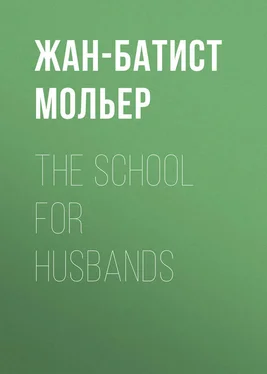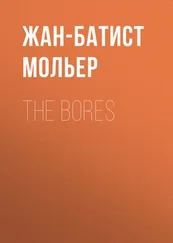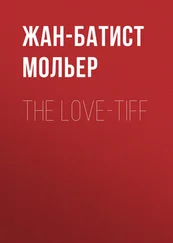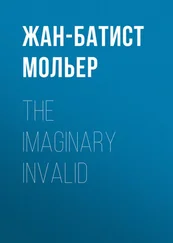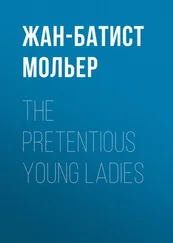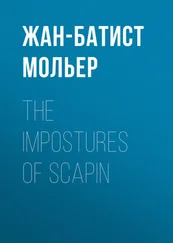Жан-Батист Мольер - The School for Husbands
Здесь есть возможность читать онлайн «Жан-Батист Мольер - The School for Husbands» — ознакомительный отрывок электронной книги совершенно бесплатно, а после прочтения отрывка купить полную версию. В некоторых случаях можно слушать аудио, скачать через торрент в формате fb2 и присутствует краткое содержание. Жанр: foreign_antique, foreign_prose, foreign_dramaturgy, на английском языке. Описание произведения, (предисловие) а так же отзывы посетителей доступны на портале библиотеки ЛибКат.
- Название:The School for Husbands
- Автор:
- Жанр:
- Год:неизвестен
- ISBN:нет данных
- Рейтинг книги:4 / 5. Голосов: 1
-
Избранное:Добавить в избранное
- Отзывы:
-
Ваша оценка:
- 80
- 1
- 2
- 3
- 4
- 5
The School for Husbands: краткое содержание, описание и аннотация
Предлагаем к чтению аннотацию, описание, краткое содержание или предисловие (зависит от того, что написал сам автор книги «The School for Husbands»). Если вы не нашли необходимую информацию о книге — напишите в комментариях, мы постараемся отыскать её.
The School for Husbands — читать онлайн ознакомительный отрывок
Ниже представлен текст книги, разбитый по страницам. Система сохранения места последней прочитанной страницы, позволяет с удобством читать онлайн бесплатно книгу «The School for Husbands», без необходимости каждый раз заново искать на чём Вы остановились. Поставьте закладку, и сможете в любой момент перейти на страницу, на которой закончили чтение.
Интервал:
Закладка:
As for this Translation, which endeavours to preserve the Spirit as well as Meaning of the Original, I shall only say, that if it can be so happy as to please Your LADYSHIP, all the Pains it cost me will be over-paid.
I beg Pardon for this Presumption, and am, with the greatest Respect that's possible, Madam, Your Ladyship's Most Obedient and most Humble Servant ,
Sir Charles Sedley, well known through a history of a "frolick" which Pepys relates in his "Diary," [Footnote: See Pepys' Diary, October 23, 1668.] wrote The Mulberry Garden , of which Langbaine, in his "An Account of the Dramatick Poets," states "I dare not say that the character of Sir John Everyoung and Sir Samuel Forecast are copies of Sganarelle and Ariste in Molière's l'École des Maris ; but I may say, that there is some resemblance, though whoever understands both languages will readily and with justice give our English wit the preference; and Sir Charles is not to learn to copy Nature from the French." This comedy, which was played by his Majesty's servants at the Theatre Royal, 1688, is dedicated to the Duchess of Richmond and Lennox, a lady who has "'scap'd (prefaces) very well hitherto," but, says Sir Charles, "Madam, your time is come, and you must bear it patiently. All the favour I can show you is that of a good executioner, which is, not to prolong your pain." This play has two girls like Isabella, called Althea and Diana, two like Leonor, Victoria and Olivia, and four lovers, as well as a rather intricate plot. The Epilogue is amusing, and we give the beginning of it: —
Poets of all men have the hardest game,
Their best Endeavours can no Favours claim.
The Lawyer if o'erthrown, though by the Laws,
He quits himself, and lays it on your Cause.
The Soldier is esteem'd a Man of War,
And Honour gains, if he but bravely dare.
The grave Physician, if his Patient dye,
He shakes his head, and blames Mortality.
Only poor Poets their own faults must bear;
Therefore grave Judges be not too severe.
Flecknoe has also imitated several of the scenes of The School forHusbands in The Damoiselles à la Mode , which is a medley of several of Molière's plays (see Introductory Notice to ThePretentious Young Ladies ).
James Miller has likewise followed, in The Man of Taste (Act i., Scene 2). (see Introductory Notice to The Pretentious YoungLadies ), one scene of the first act of Molière's The School forHusbands .
Murphy, in The School for Guardians , has borrowed from three plays of Molière. The main plot is taken from The School for Wives ; some incidents of the second act are taken from The Blunderer (see Introductory Notice to The Blunderer ), but the scenes in which Oldcastle and Lovibond state their intention of marrying their wards, and the way in which one of the wards, Harriet, makes her love known to Belford is taken from The School for Husbands , though Leonor does not betray in the French comedy, as she does in the English, the confidence placed in her. The French Isabella acts like Harriet, but then she has a foolish and jealous guardian.
Wycherley in The Country Wife , probably acted in 1672 or 1673, and which is partly an imitation of Molière's School for Wives , has borrowed from The School for Husbands , the letter which Isabella writes to Valère (Act ii., Scene 8), and also the scene in which Isabella escapes disguised in her sister's clothes: but, of course, to give an additional zest to the English play, the author makes Pinchwife himself bring his wife to her lover, Horner. The scene hardly bears transcribing. He has also partly imitated in The Gentleman Dancing-Master , first performed in 1673, some scenes of The School for Husbands .
Otway, in The Soldier's Fortune (see Introductory Notice to Sganarelle, or The Self-Deceived Husband ), has borrowed from Molière's School for Husbands that part of his play in which Lady Dunse makes her husband the agent for conveying a ring and a letter to her lover.
DRAMATIS PERSONÆ
SGANARELLE, [Footnote: This part was played by Molière himself.
In the inventory taken after Molière's death, and given by M. Soulié, we find: "A dress for The School for Husbands , consisting of breeches, doublet, cloak, collar, purse and girdle, all of a kind of brown coloured ( couleur de muse ) satin."]
}
} brothers .
ARISTE, )
VALÈRE, lover to Isabella .
ERGASTE, servant to Valère .
[Footnote: The original has un Commissaire , who in Molière's time, appears to have been a kind of inferior magistrate under the authority of the Lieutenant-général de la Police . The Commissaires de Police were not established till 1699; and The School for Husbands was played for the first time in 1661.]
ISABELLA, )
) sisters .
LÉONOR, }
LISETTE, maid to Isabella .
Scene . – A PUBLIC PLACE IN PARIS.
ACT I
SCENE I. – SGANARELLE, ARISTE
SGAN. Pray, brother, let us talk less, and let each of us live as he likes. Though you have the advantage of me in years, and are old enough to be wise, yet I tell you that I mean to receive none of your reproofs; that my fancy is the only counsellor I shall follow, and that I am quite satisfied with my way of living.
AR. But every one condemns it.
SGAN. Yes, fools like yourself, brother.
AR. Thank you very much. It is a pleasant compliment.
SGAN. I should like to know, since one ought to hear everything, what these fine critics blame in me.
AR. That surly and austere temper which shuns all the charms of society, gives a whimsical appearance to all your actions, and makes everything peculiar in you, even your dress.
SGAN. I ought then to make myself a slave in fashion, and not to put on clothes for my own sake? Would you not, my dear elder brother – for, Heaven be thanked, so you are, to tell you plainly, by a matter of twenty years; and that is not worth the trouble of mentioning – would you not, I say, by your precious nonsense, persuade me to adopt the fashions of those young sparks of yours?
[Footnote: The original has vos jeunes muguets , literally "your young lilies of the valley," because in former times, according to some annotators, the courtiers wore natural or artificial lilies of the valley in their buttonholes, and perfumed themselves with the essence of that flower. I think that muguet is connected with the old French word musguet , smelling of musk. In Molière's time muguet had become rather antiquated; hence it was rightly placed in the mouth of Sganarelle, who likes to use such words and phrases. Rabelais employs it in the eighth chapter of Gargantua, un tas de muguets , and it has been translated by Sir Thomas Urquhart as "some fond wooers and wench-courters." The fashion of calling dandies after the name of perfumes is not rare in France. Thus Regnier speaks of them as marjolets , from marjolaine , sweet marjoram; and Agrippa d'Aubigné calls them muscadins (a word also connected with the old French musguet ), which name was renewed at the beginning of the first French revolution, and bestowed on elegants, because they always smelled of musk.]
Oblige me to wear those little hats which provide ventilation for their weak brains, and that flaxen hair, the vast curls whereof conceal the form of the human face;
Читать дальшеИнтервал:
Закладка:
Похожие книги на «The School for Husbands»
Представляем Вашему вниманию похожие книги на «The School for Husbands» списком для выбора. Мы отобрали схожую по названию и смыслу литературу в надежде предоставить читателям больше вариантов отыскать новые, интересные, ещё непрочитанные произведения.
Обсуждение, отзывы о книге «The School for Husbands» и просто собственные мнения читателей. Оставьте ваши комментарии, напишите, что Вы думаете о произведении, его смысле или главных героях. Укажите что конкретно понравилось, а что нет, и почему Вы так считаете.
